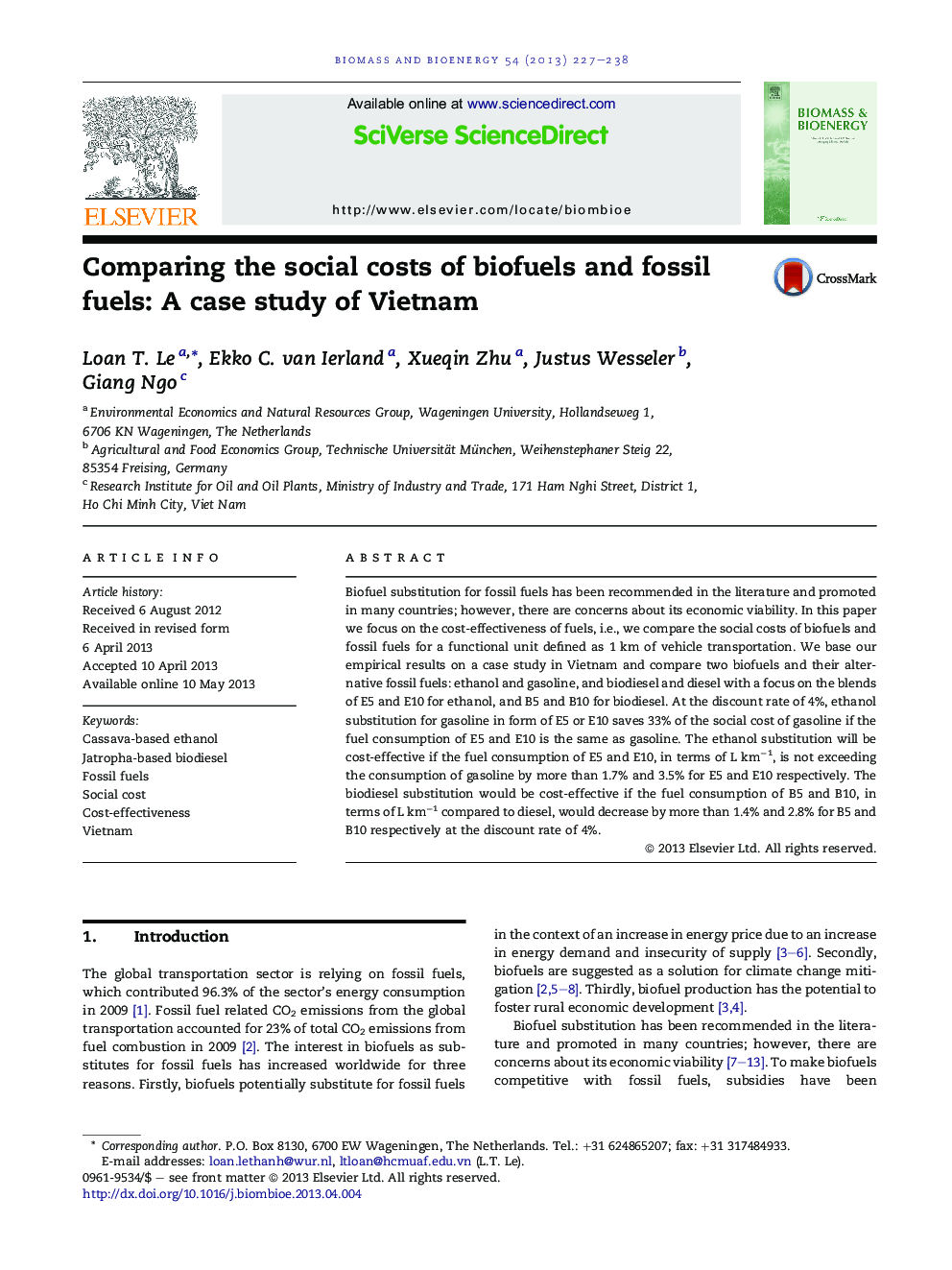| Article ID | Journal | Published Year | Pages | File Type |
|---|---|---|---|---|
| 677123 | Biomass and Bioenergy | 2013 | 12 Pages |
•We examine cost-effectiveness of biofuels under efficiency levels of blends.•Cassava-based ethanol used as E5 saves 33% of social cost compared to gasoline.•Ethanol is cost-effective if E5 consumption per km is less than 1.017 times gasoline consumption.•Jatropha-based biodiesel used as B5 or B10 is currently not cost-effective in comparison to diesel.•Biodiesel would be cost-effective if B5 consumption per km would be less than 0.986 times diesel consumption.
Biofuel substitution for fossil fuels has been recommended in the literature and promoted in many countries; however, there are concerns about its economic viability. In this paper we focus on the cost-effectiveness of fuels, i.e., we compare the social costs of biofuels and fossil fuels for a functional unit defined as 1 km of vehicle transportation. We base our empirical results on a case study in Vietnam and compare two biofuels and their alternative fossil fuels: ethanol and gasoline, and biodiesel and diesel with a focus on the blends of E5 and E10 for ethanol, and B5 and B10 for biodiesel. At the discount rate of 4%, ethanol substitution for gasoline in form of E5 or E10 saves 33% of the social cost of gasoline if the fuel consumption of E5 and E10 is the same as gasoline. The ethanol substitution will be cost-effective if the fuel consumption of E5 and E10, in terms of L km−1, is not exceeding the consumption of gasoline by more than 1.7% and 3.5% for E5 and E10 respectively. The biodiesel substitution would be cost-effective if the fuel consumption of B5 and B10, in terms of L km−1 compared to diesel, would decrease by more than 1.4% and 2.8% for B5 and B10 respectively at the discount rate of 4%.
